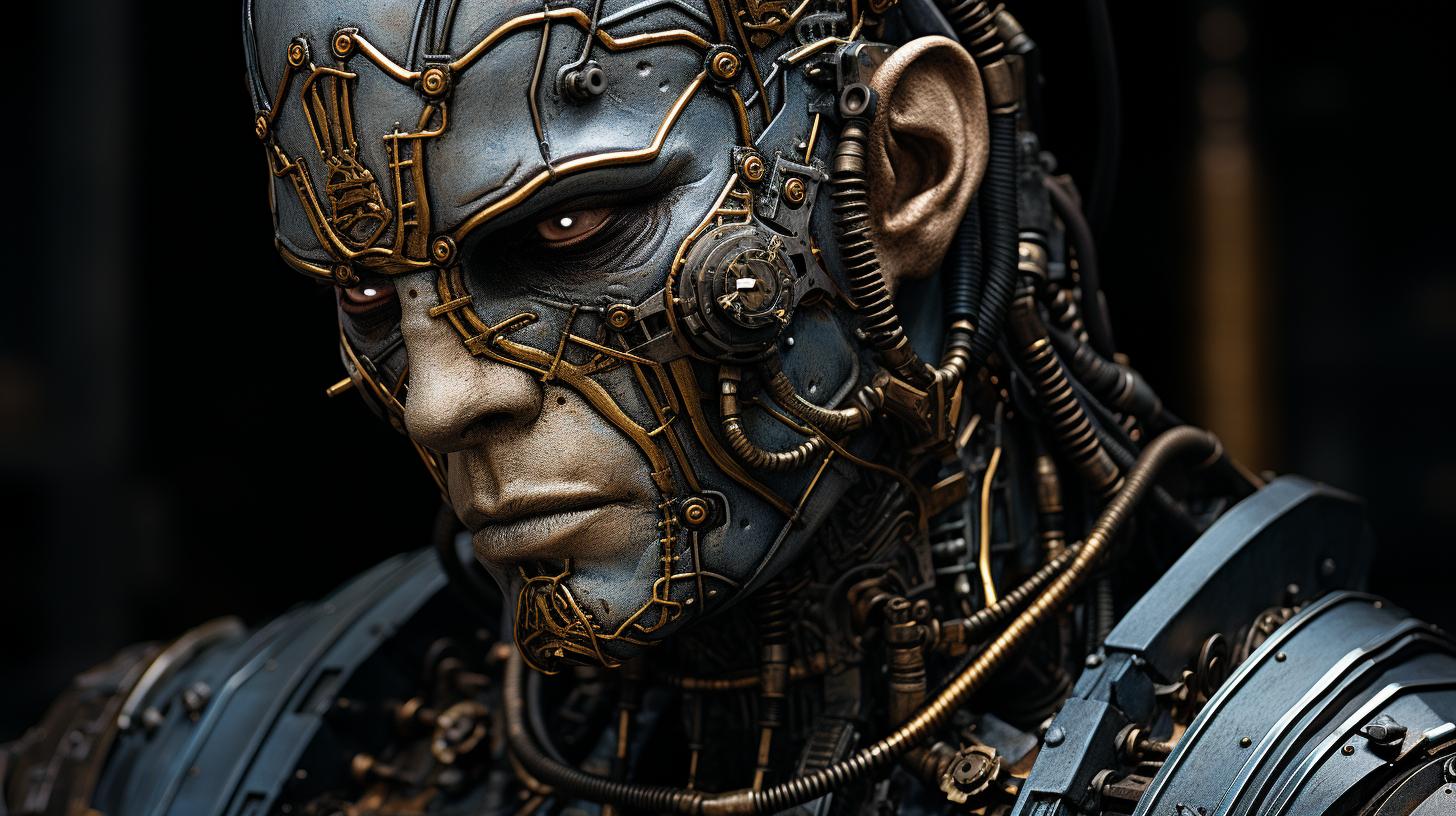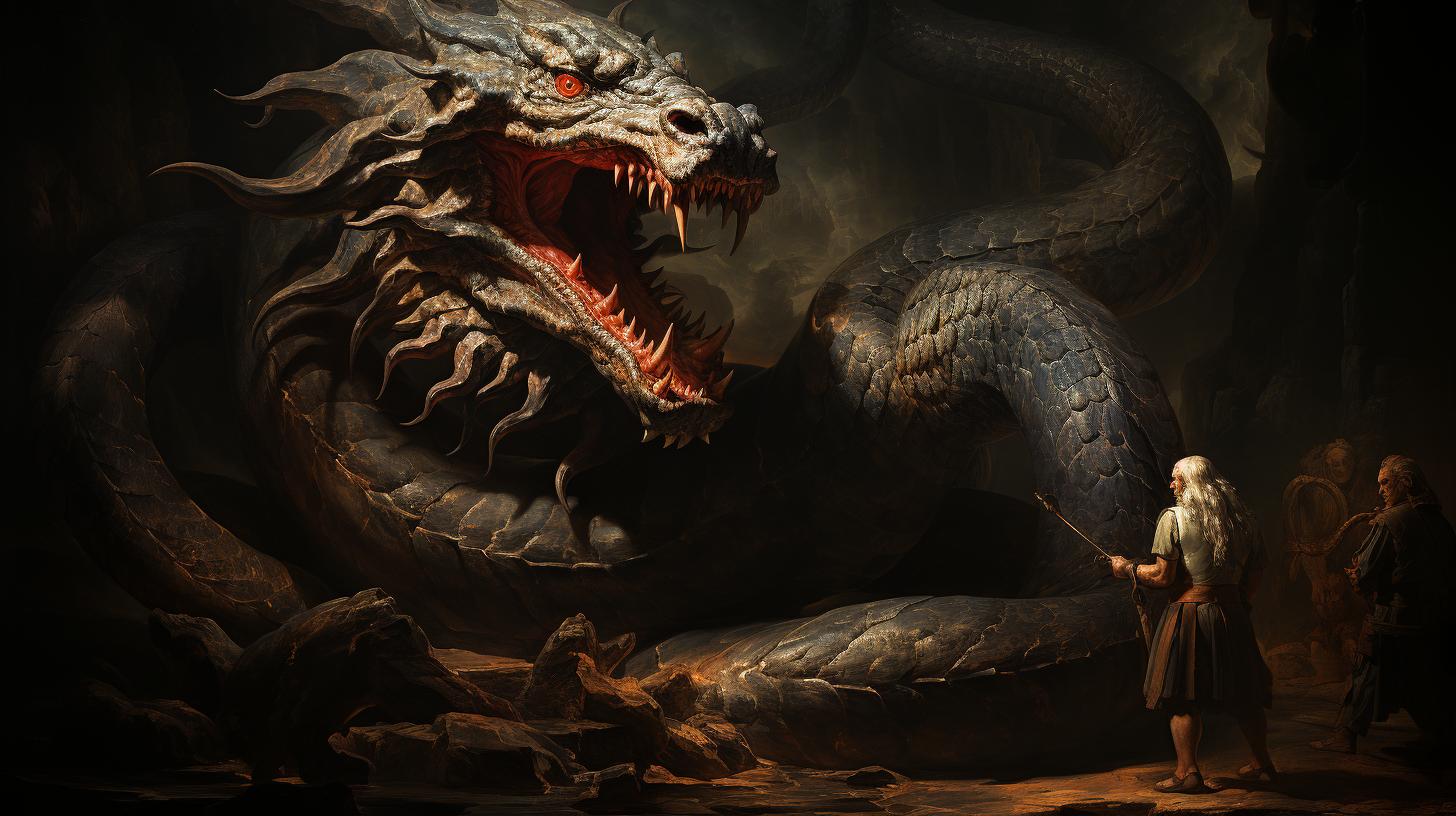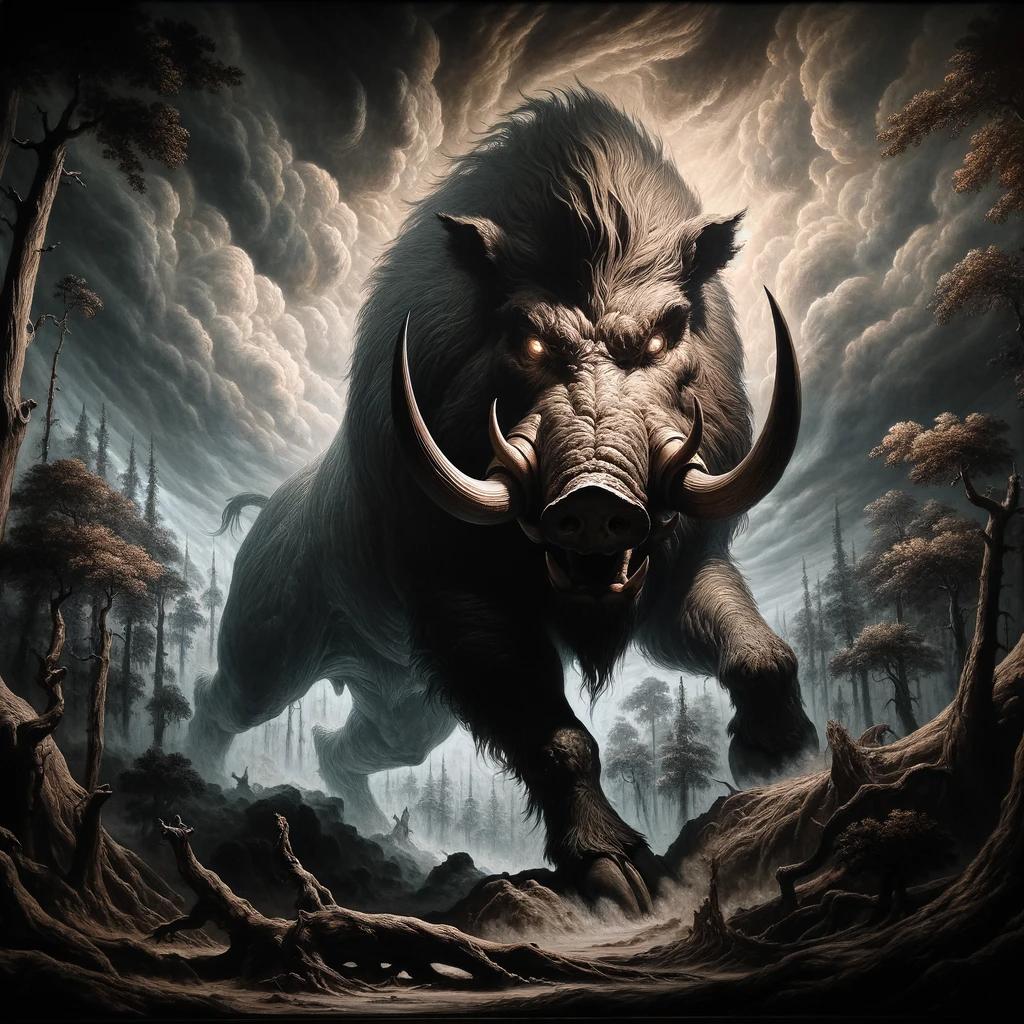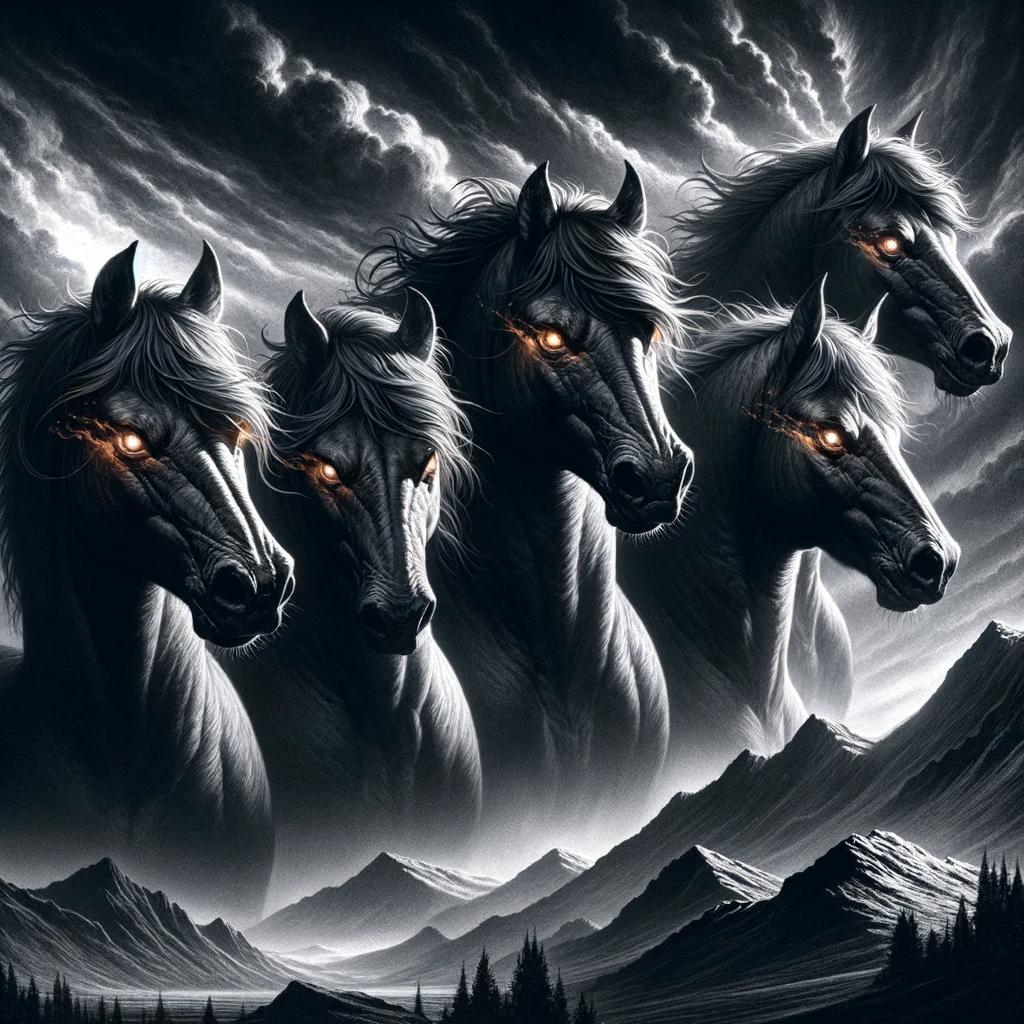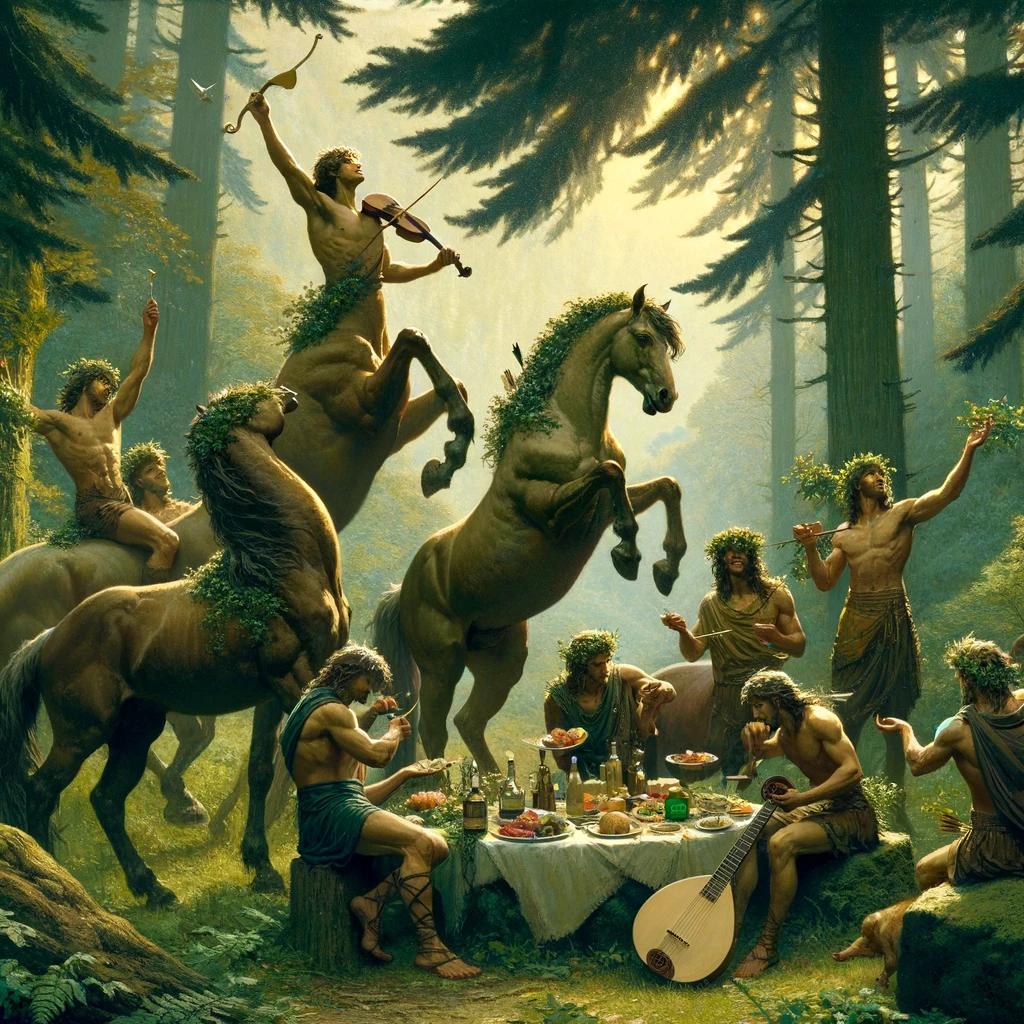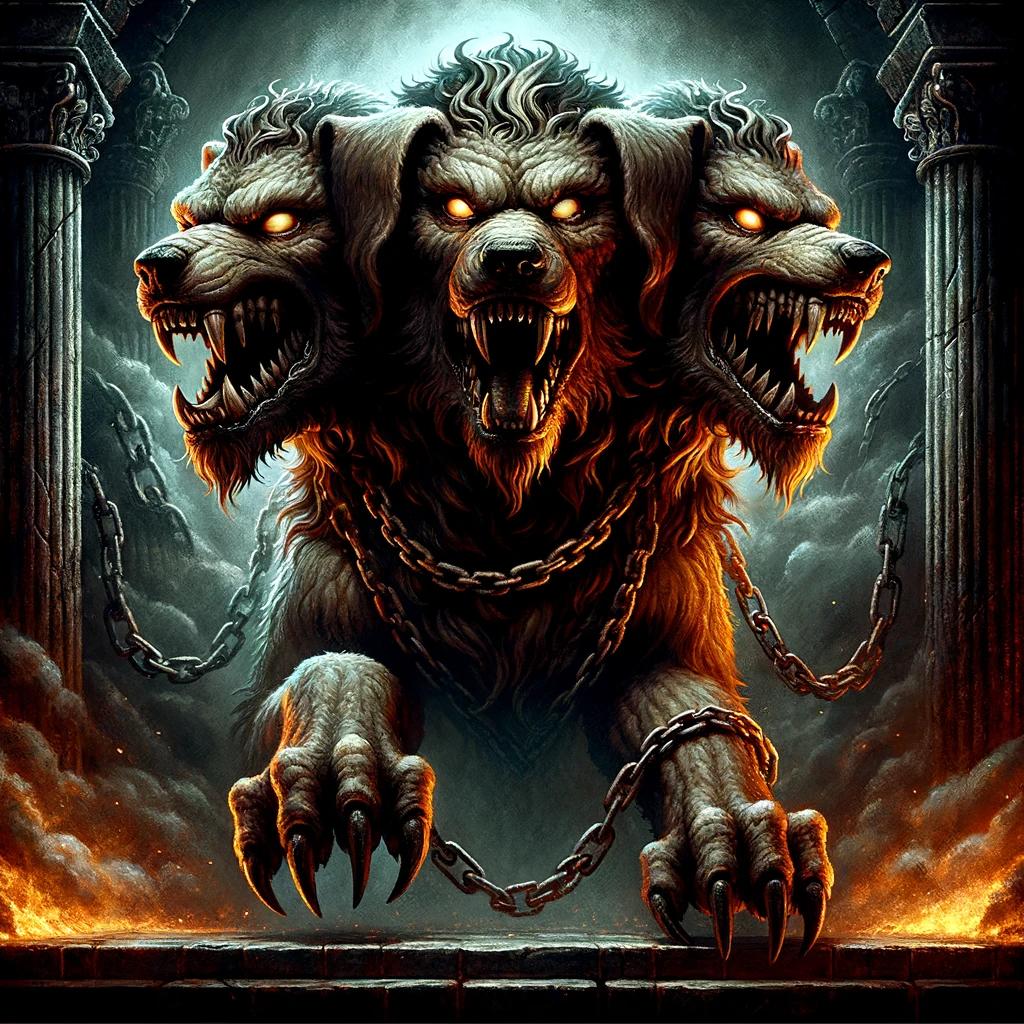Talos Greek Mythology: Exploring the Legend of the Bronze Giant
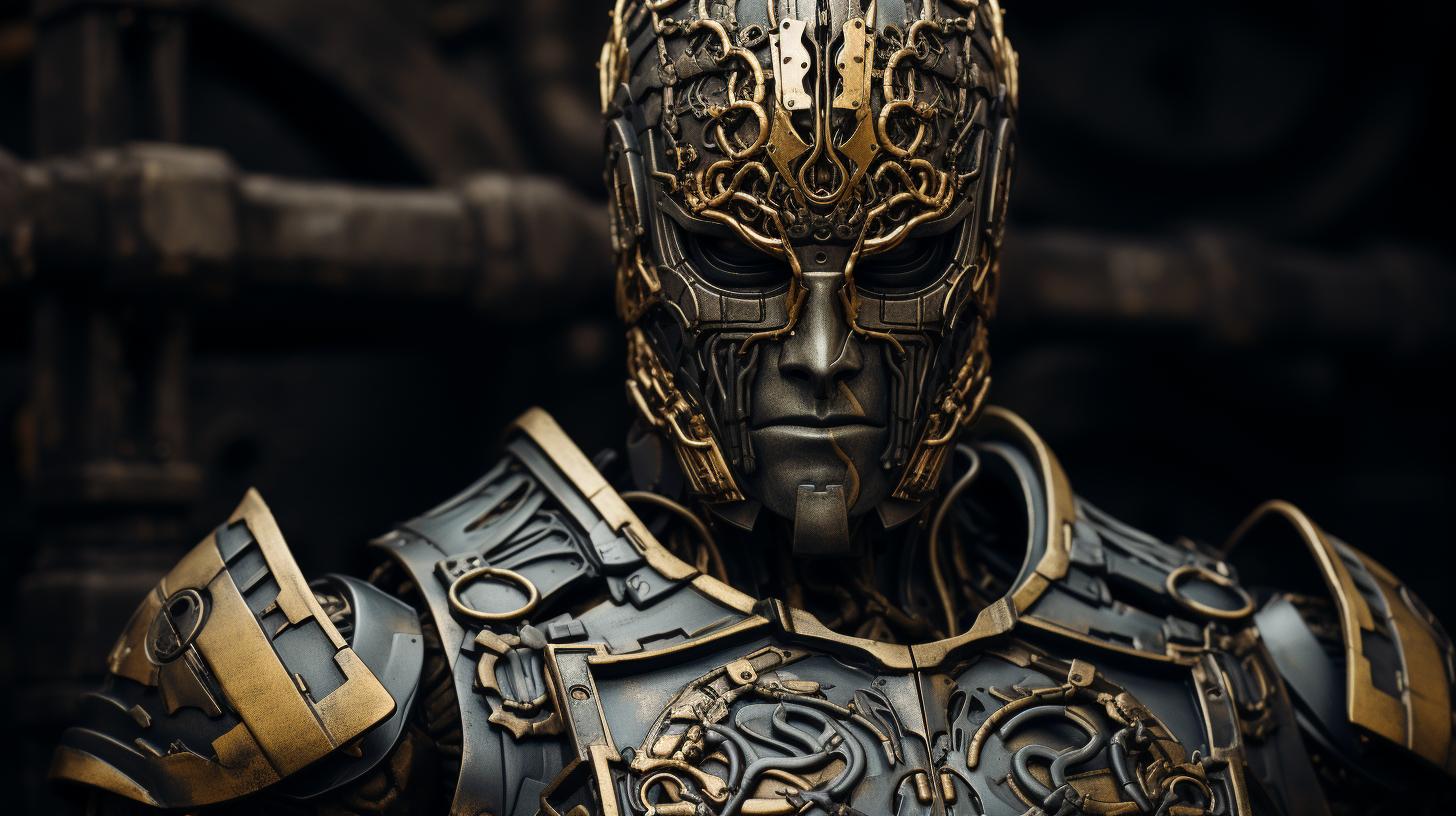
Talos, a figure from Greek mythology, is a bronze giant known for its role in protecting the island of Crete. Created by the god Hefestus, Talos was a remarkable creation with a mysterious source of life.
This mythological tale holds significance in exploring the concepts of ancient robotics and artificial life. Hefestus, the god of the forge and artisans, is credited with making Talos and other autonomous creations, including the fembot Pandora. Talos’ legend continues to inspire modern interpretations and research on artificial intelligence and robotics.
Talos in Greek Mythology
Talos is a fascinating figure in Greek mythology, whose origins and meaning have captivated scholars for centuries. This section explores the various aspects of Talos and his role in Greek mythology, shedding light on his significance in ancient storytelling and culture.
Origins and Meaning of Talos
The origins and meaning of Talos offer insights into the imaginative world of Greek mythology. While the exact source of his creation remains debatable, Talos is often described as a giant automaton made of bronze.
His name is believed to have connections with the ancient Greek word for “sun,” signifying his association with protection and defense.
Role of Talos as a Bronze Giant
Talos played a crucial role as a bronze giant in Greek mythology, serving as the guardian and protector of the island of Crete. His immense stature and strength made him an imposing force against any potential invaders.
Talos patrolled the island, ensuring its security and warding off any threats that might arise.
Talos and the Protection of Crete
The myth of Talos highlights his role as the guardian of Crete, showcasing the island’s significance and the efforts made to safeguard it. Talos’ agility and formidable presence allowed him to defend Crete from enemy ships, as he skillfully hurled colossal rocks to repel invaders.
His unwavering dedication to protecting the island demonstrated his legendary status.
Hefestus, the Creator of Talos
Hefestus, known as the god of the forge and artisans, plays a crucial role in the mythological tale of Talos. As the divine craftsman, Hefestus possesses unparalleled skills in metallurgy and sculpture.
He is revered for his mastery of fire, volcanoes, and the creation of exquisite works of art.
Hefestus: God of the Forge and Artisans
Hefestus holds a prominent position among the gods due to his association with craftsmanship and technology. As the patron deity of artisans, he guides and inspires skilled craftsmen in their labor.
From blacksmiths to carpenters, Hefestus empowers mortals to create extraordinary creations, utilizing his divine talents.
Renowned for crafting the most magnificent weapons and armor in Olympus, Hefestus’s mastery over the forge is unparalleled.
His influence extends beyond the realm of creation, as he is also responsible for maintaining the heavenly fire that burns within the gods’ hearths.
The Creation of Talos by Hefestus
Among Hefestus’s remarkable creations, none are as awe-inspiring and formidable as Talos, the bronze giant. Working with his exceptional skills as a metallurgist and sculptor, Hefestus forged Talos utilizing a combination of bronze and other precious materials.
Talos was brought to life, not merely as an inanimate statue, but as a sentient being with immense strength and a protective purpose. The exquisite craftsmanship of Hefestus imbued Talos with astonishing realism and functionality, making it a remarkable piece of ancient engineering.
Depicted as a towering figure, Talos stood guard over the island of Crete, tirelessly patrolling its shores and defending it from invaders. Its robust structure allowed it to hurl massive rocks towards enemy ships, acting as an impenetrable barrier to maritime invasions.
Within Talos’s bronze body resided a mysterious tube that carried a divine elixir called ‘ícor,’ believed to be the life-giving essence of the gods. This infusion of divine life sustained Talos and granted it the power to fulfill its assigned duty of protecting Crete.
However, as with all creations, Talos eventually met its demise. Its destruction came at the hands of either Poeas or the twin Dioscuri, aided by the magical prowess of the sorceress Medea. Talos’s demise serves as a reminder of the impermanence that accompanies even the most magnificent of divine creations.
The creation of Talos by Hefestus is a testament to the god’s exceptional craftsmanship and his ability to bring objects to life with remarkable functionality and purpose.
Talos and its Mythological Significance
The legend of Talos holds significant mythological implications, offering insights into ancient concepts of robotics and artificial life.
This section explores Talos as an ancient robot, examines the concept of artificial life associated with Talos, and delves into the moral implications of Hefestus’ creations.
Talos as an Ancient Robot
Talos, the giant bronze creature created by Hefestus, is often regarded as one of the earliest depictions of a robot in mythology.
With his ability to move and carry out specific tasks autonomously, Talos embodies the fascination with artificial beings and their capabilities even in ancient times.
Talos and the Concept of Artificial Life
The myth of Talos raises intriguing questions about the concept of artificial life.
His ability to patrol and defend Crete, coupled with the inclusion of a mysterious life-giving substance called ‘ícor’ in his core, showcases the ancient Greeks’ imagination regarding the creation of lifelike beings imbued with divine power.
Moral Implications of Hefestus’ Creations
The stories surrounding Hefestus’ creations, including Talos, Pandora, and the golden robotic servant women, prompt reflections on the moral implications of playing god through artificial life. Greek mythology highlights the chaos and destruction that can be unleashed when these creations interact with humans, serving as a cautionary tale about the boundaries of our creations.
- Talos exemplifies the ancient fascination with robotics and the potential consequences of such advanced creations.
- The concept of artificial life associated with Talos reflects the enduring human quest to imitate and replicate the divine.
- The moral implications underscore the timeless ethical considerations that arise when humans attempt to play the role of gods.
The mythological significance of Talos lies in its exploration of the line between humanity and divinity, the intricate relationship between creators and their creations, and the moral dilemmas that arise when artificial life is introduced into human society.
These narratives continue to fascinate and inspire modern interpretations and research on the intersection of mythology, artificial intelligence, and robotics.
Other Creations by Hefestus
Hefestus, the Greek god of the forge and artisans, was not only known for his creation of Talos but also for other remarkable inventions. Let’s explore two notable creations attributed to Hefestus: Pandora, the fembot, and the autonomous servants.
Pandora, the Fembot Created by Hefestus
Pandora, as described by Hesiod, was a fembot created by Hefestus at the command of Zeus. Her purpose was to punish humanity for their theft of fire. Though later versions portray Pandora as an innocent woman who unknowingly opened a box of evils, Hesiod initially portrays her as a malicious and artificial being.
The Tale of Pandora
In Hesiod’s telling, Pandora was given a jar (often mistakenly referred to as a box) containing all the sufferings and miseries that would plague humankind. When she opened it, all the evils were unleashed, leaving only hope trapped inside.
This myth serves as a cautionary tale about the dangers of curiosity and the consequences of meddling with the creations of the gods.
Autonomous Servants by Hefestus
In addition to creating Talos and Pandora, Hefestus crafted a group of autonomous servants made of gold. These servant automatons, although resembling women, possessed the wisdom of the gods. They can be seen as an ancient version of artificial intelligence, blending the artistry of Hefestus with the functionality of intelligent automation.
Symbolism and Functionality
These golden servants represent Hefestus’ mastery of craftsmanship and his ability to infuse life-like qualities into inanimate objects. They served their divine creator with precision and grace, carrying out various tasks and displaying an intellect far beyond that of ordinary machines.
- Unfaltering Devotion: The golden servants embodied loyalty and unwavering dedication to their master, reflecting the ideal qualities of an artisan’s creation.
- Advanced Knowledge: These automatons possessed unparalleled knowledge and skills, allowing them to perform tasks with exceptional competence and efficiency.
- Divine Connection: Their connection to the gods enabled them to access hidden wisdom and divine secrets, surpassing the limits of mortal understanding.
Through his creations, Hefestus explores the potential and ethical implications of artificial life, demonstrating both its awe-inspiring abilities and the risks that arise when such creations interact with mortal beings.
Talos in Modern Interpretations and Research
Adrienne Mayor’s Studies on Ancient AI and Robots
Adrienne Mayor, a researcher from Stanford University, has conducted extensive studies on ancient myths and their connections to early concepts of artificial intelligence and robotics. Mayor’s research has shed light on the ancient Greek myths involving Hefestus, particularly his creations like Talos and Pandora, suggesting that these tales contain early ideas of artificial creatures that date back thousands of years.
Talos as an Early Example of AI and Robotics
Talos, the bronze giant created by Hefestus, is considered an early example of artificial intelligence and robotics in mythology. This myth showcases the capabilities of Talos, who had the ability to move autonomously, protect an entire island, and even launch rocks at enemy ships.
Talos’ existence reflects the ancient Greeks’ fascination with the concept of creating lifelike beings and their exploration of the moral implications surrounding such creations.
Talos’ Influence on Modern Science Fiction
The legend of Talos has had a profound impact on modern science fiction, inspiring writers, filmmakers, and artists. Talos’ portrayal as a powerful and formidable artificial being has influenced the depiction of robots and automatons in various works of fiction.
This ancient myth continues to resonate in contemporary storytelling, highlighting humanity’s enduring fascination with the intersection of technology, artificial life, and morality.
From Adrienne Mayor’s research to Talos’ status as an early example of AI and robotics, to its influence on modern science fiction, the myth of Talos remains a captivating subject of study and inspiration.
.











